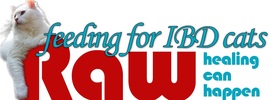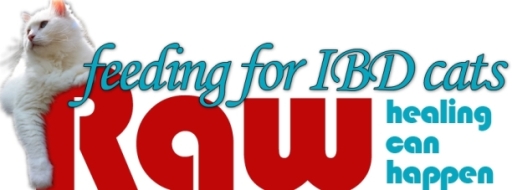Mannan oligosaccharides (MOS) - Its importance in gut health
February 2019
Our article on Probiotics identifies steps to support the health of our pets in the presence of gut dysbiosis along with known steps we can take to address that gut dysbiosis. And while probiotics have an important role in performing functions to make up for problems caused by the gut dysbiosis, to create a healthy, diverse microbiome we must provide a healthy home (intestinal structure) and food for those colonies. MOS has an important role in that process.
Please note, MOS and Saccharomyces boulardii (review of the Science, here) work synergistically together. This is why we stress the importance of using specifically the Jarrow brand of S boulardii. This is the only formulation we’re aware of that contains this powerful combination.
Jarrow S Boulardii + MOS can be purchased internationally from iHerb.com. And if purchase from amazon UK or iHerb are not options for you, in Europe there is a product for pets, Entero Chronic, that can be used alongside an S boulardii product that does not already contain MOS.
Mannan oligosaccharides are derived from the cell wall of Saccharomyces cerevisiae (commonly known as brewer’s yeast). It has many important impacts on gut health:
In short, MOS has an important role as a prebiotic; in the structure of intestinal health; in safe, non-toxic pathogen removal, and as an immune system modulator.
Review studies of note:
Santos et al. 2018. Effects of dietary yeast cell wall on faecal bacteria and fermentation products in adult cats, J Anim Physiol Anim Nutr (Berl). 2018 Aug;102(4):1091-1101.
Spring et al. 2015. A review of 733 published trials on Bio-Mos®, a mannan oligosaccharide, and Actigen®, a second- generation mannose rich fraction, on farm and companion animals, Journal of Applied Animal Nutrition, Vol. 3; e7:1-11
Kocher & Tucker 2007. The ‘gut health’ response to dietary Bio-Mos® effects on gut microbiology, intestinal morphology and immune response, Alltech Biotechnology Centre, Ireland.
Ferreira Gouveia et al. 2007. Use of mannanoligosacharides as an adjuvant treatment for gastrointestinal diseases and their effects on E.coli inactivated in dogs, Acta Cir Bras. 2006;21 Suppl 4:23-6.
Ferket 2002. Controlling Gut Health without the Use of Antibiotics, In Proceedings of 63rd Minnesota Nutrition Conference, Eagan, MN, USA, 17–18 September 2002; pp. 169–182.
Spring et al. 2000. The effects of dietary mannanoligosaccharides on cecal parameters and the concentrations of enteric bacteria in the ceca of salmonella-challenged broiler chicks, Poultry Science 79:205–211.
Our article on Probiotics identifies steps to support the health of our pets in the presence of gut dysbiosis along with known steps we can take to address that gut dysbiosis. And while probiotics have an important role in performing functions to make up for problems caused by the gut dysbiosis, to create a healthy, diverse microbiome we must provide a healthy home (intestinal structure) and food for those colonies. MOS has an important role in that process.
Please note, MOS and Saccharomyces boulardii (review of the Science, here) work synergistically together. This is why we stress the importance of using specifically the Jarrow brand of S boulardii. This is the only formulation we’re aware of that contains this powerful combination.
Jarrow S Boulardii + MOS can be purchased internationally from iHerb.com. And if purchase from amazon UK or iHerb are not options for you, in Europe there is a product for pets, Entero Chronic, that can be used alongside an S boulardii product that does not already contain MOS.
Mannan oligosaccharides are derived from the cell wall of Saccharomyces cerevisiae (commonly known as brewer’s yeast). It has many important impacts on gut health:
- MOS is a prebiotic that stimulates growth of beneficial bacteria, however
- in contrast to other popular prebiotics like inulin / fructo-oligosaccharides (FOS), MOS has a direct impact on pathogenic gut bacteria colonization (as does S boulardii. There is cross-over, but they both also specialize in different pathogens, which is why they are so effective when used together).
- Importantly, MOS attracts and removes salmonella. It also blocks attachment and colonization of the intestines by E. coli and other gram negative bacteria. Notably, MOS has been shown to be effective in treating gastroenteritis in dogs, clearing E coli in 85.7% of dogs vs just 25% cleared in the group treated conventionally without the addition of MOS.
- MOS improves intestinal health. A large surface area is key for optimal digestive function and nutrient absorption: healthy intestines have long villi. MOS has been shown to alter intestinal structure, increasing villi length and density.
- MOS also improves intestinal health by increasing mucus production, needed to protect the villi and intestinal surface.
- MOS acts as an immune modulator. Produced in large quantities by the mucosal immune system, IgA is the only antibody secreted into the intestinal lumen. MOS promotes secretion of IgA into the gut mucosal layer, making pathogenic agents more susceptible to the body’s natural immune defenses.
- Like Saccharmocyes boulardii, MOS also stimulates the enzymes the intestines naturally produce, helping restore normal function.
In short, MOS has an important role as a prebiotic; in the structure of intestinal health; in safe, non-toxic pathogen removal, and as an immune system modulator.
Review studies of note:
Santos et al. 2018. Effects of dietary yeast cell wall on faecal bacteria and fermentation products in adult cats, J Anim Physiol Anim Nutr (Berl). 2018 Aug;102(4):1091-1101.
Spring et al. 2015. A review of 733 published trials on Bio-Mos®, a mannan oligosaccharide, and Actigen®, a second- generation mannose rich fraction, on farm and companion animals, Journal of Applied Animal Nutrition, Vol. 3; e7:1-11
Kocher & Tucker 2007. The ‘gut health’ response to dietary Bio-Mos® effects on gut microbiology, intestinal morphology and immune response, Alltech Biotechnology Centre, Ireland.
Ferreira Gouveia et al. 2007. Use of mannanoligosacharides as an adjuvant treatment for gastrointestinal diseases and their effects on E.coli inactivated in dogs, Acta Cir Bras. 2006;21 Suppl 4:23-6.
Ferket 2002. Controlling Gut Health without the Use of Antibiotics, In Proceedings of 63rd Minnesota Nutrition Conference, Eagan, MN, USA, 17–18 September 2002; pp. 169–182.
Spring et al. 2000. The effects of dietary mannanoligosaccharides on cecal parameters and the concentrations of enteric bacteria in the ceca of salmonella-challenged broiler chicks, Poultry Science 79:205–211.

